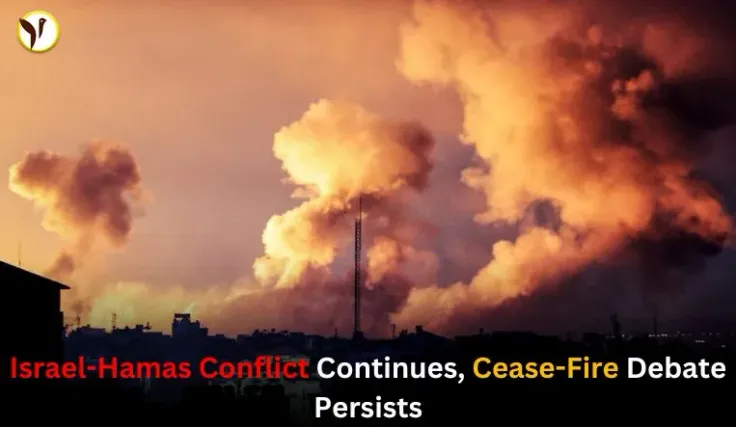The Israel-Hamas conflict has now raged on for over a month, with Israel rejecting international calls, including those from the United States, for a cease-fire.
US President Joe Biden once again appealed to Israeli Prime Minister Benjamin Netanyahu to halt the violence, expressing concerns about the conflict expanding throughout the Middle East. In response, the Israel Defense Force (IDF) pointed the blame at Hamas for not reciprocating the cease-fire calls.
Netanyahu's recent interview, where he hinted at overseeing Gaza's security after eliminating Hamas, has raised apprehensions about a potential reoccupation of the Palestinian enclave. The White House voiced its opposition to this idea, stating it would not be in Israel's or its people's best interest.
The Israel-Gaza conflict will top the agenda at the upcoming Group of Seven foreign ministers' meeting in Tokyo. US Secretary of State Antony Blinken and Japan's Foreign Minister Yoko Kamikawa have agreed on the importance of a unified response.
Meanwhile, hostages held by Hamas remain a grave concern. Five have been freed, but the slow progress in securing the release of the others has left families in anguish, with many anxious about their loved ones' well-being.
Also, The Role of Mentors in Career Growth: Finding and Nurturing a Professional Guide
Saudi Arabia is set to host summits of Arab and Islamic nations to address the Israeli-Palestinian conflict and work towards a peaceful resolution.
Additionally, Israel has announced the establishment of a new city called 'Hanun' near Gaza, intended to house a mixed religious and secular population of approximately 500 families.
US Vice President Kamala Harris has reiterated her support for Israel's right to defend its citizens and combat terrorism during discussions with Israeli President Isaac Herzog.
Join our free workshops
Also read, Deepfake Controversy: Detection, Prevention, and Necessary Actions
stay tuned for more news content!







